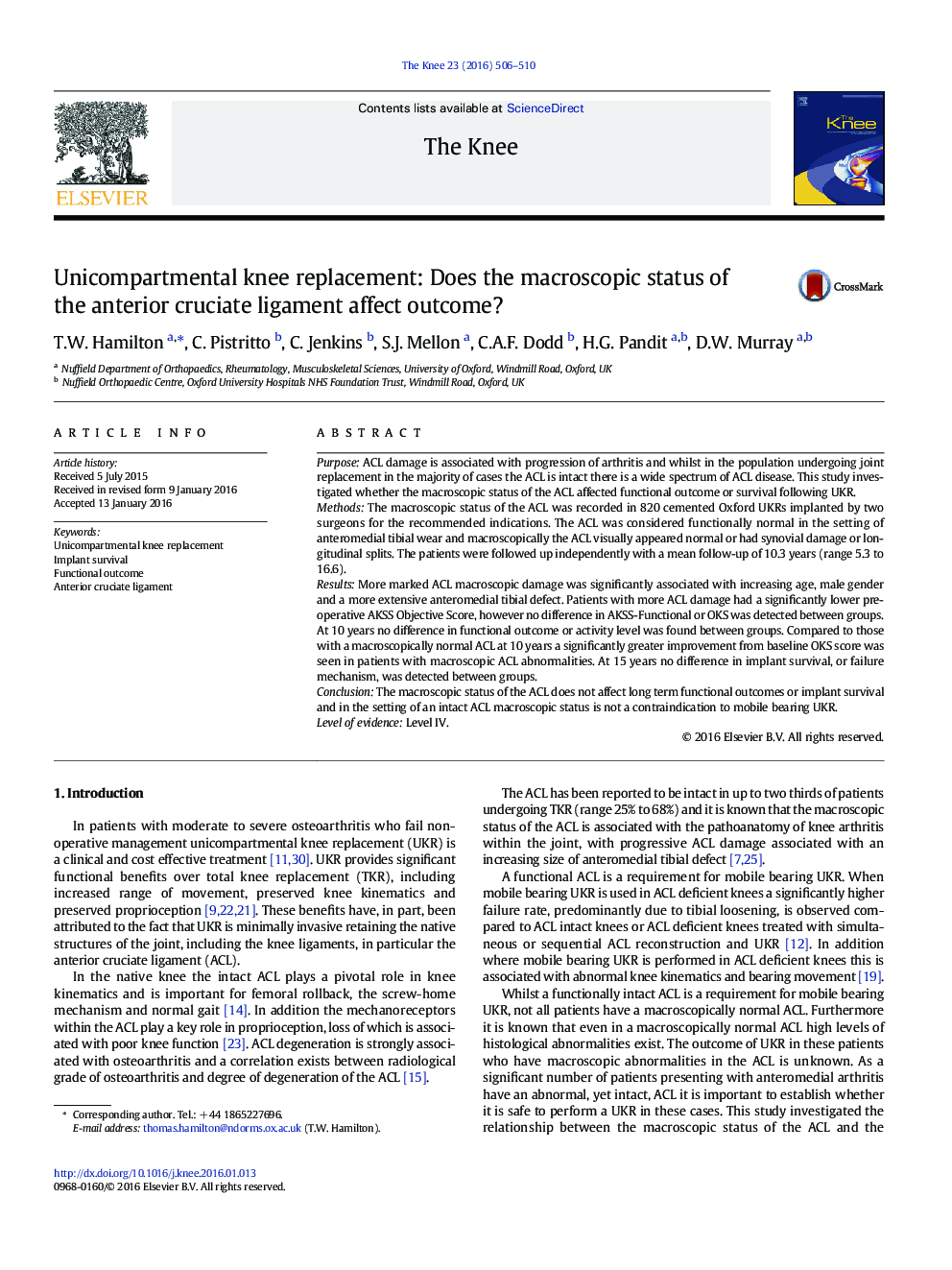| Article ID | Journal | Published Year | Pages | File Type |
|---|---|---|---|---|
| 6211152 | The Knee | 2016 | 5 Pages |
â¢At the time of knee replacement (TKR or UKR) in most cases the ACL is intact however there is wide spectrum of ACL disease.â¢More marked ACL damage is associated with increasing age, male gender and a more extensive anteromedial tibial defect.â¢The macroscopic status of the intact ACL at the time of UKR does not affect long term functional outcome or implant survival.â¢In the setting of an intact ACL macroscopic status is not a contraindication to mobile bearing UKR.
PurposeACL damage is associated with progression of arthritis and whilst in the population undergoing joint replacement in the majority of cases the ACL is intact there is a wide spectrum of ACL disease. This study investigated whether the macroscopic status of the ACL affected functional outcome or survival following UKR.MethodsThe macroscopic status of the ACL was recorded in 820 cemented Oxford UKRs implanted by two surgeons for the recommended indications. The ACL was considered functionally normal in the setting of anteromedial tibial wear and macroscopically the ACL visually appeared normal or had synovial damage or longitudinal splits. The patients were followed up independently with a mean follow-up of 10.3Â years (range 5.3 to 16.6).ResultsMore marked ACL macroscopic damage was significantly associated with increasing age, male gender and a more extensive anteromedial tibial defect. Patients with more ACL damage had a significantly lower pre-operative AKSS Objective Score, however no difference in AKSS-Functional or OKS was detected between groups. At 10Â years no difference in functional outcome or activity level was found between groups. Compared to those with a macroscopically normal ACL at 10Â years a significantly greater improvement from baseline OKS score was seen in patients with macroscopic ACL abnormalities. At 15Â years no difference in implant survival, or failure mechanism, was detected between groups.ConclusionThe macroscopic status of the ACL does not affect long term functional outcomes or implant survival and in the setting of an intact ACL macroscopic status is not a contraindication to mobile bearing UKR.Level of evidenceLevel IV.
